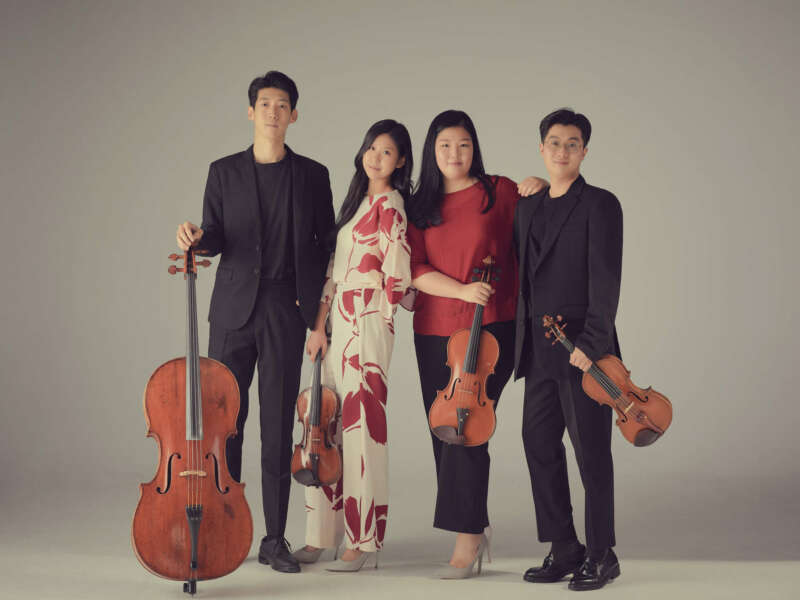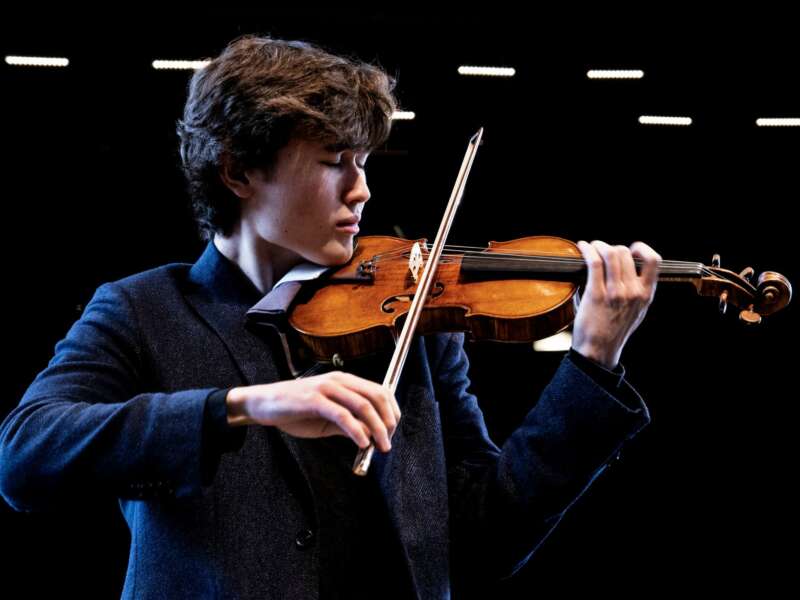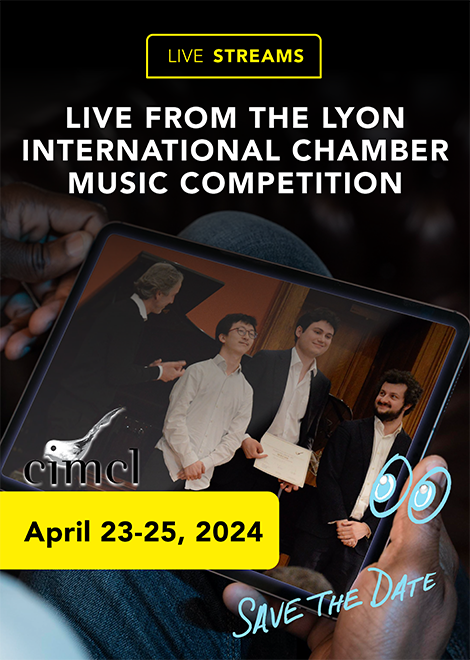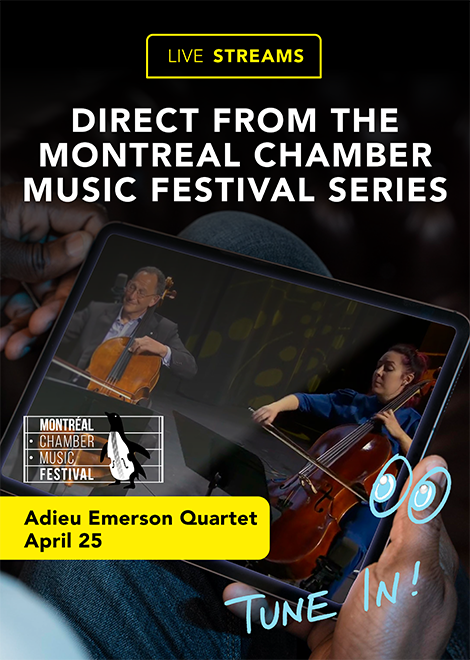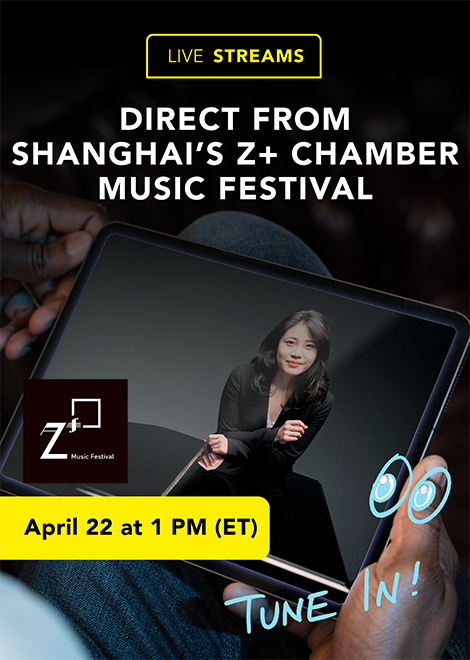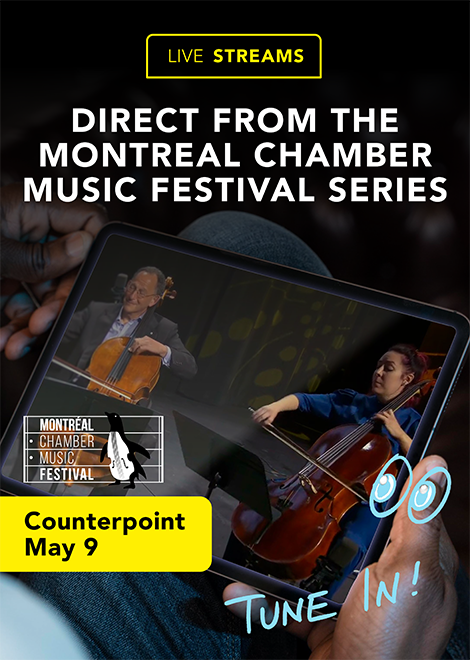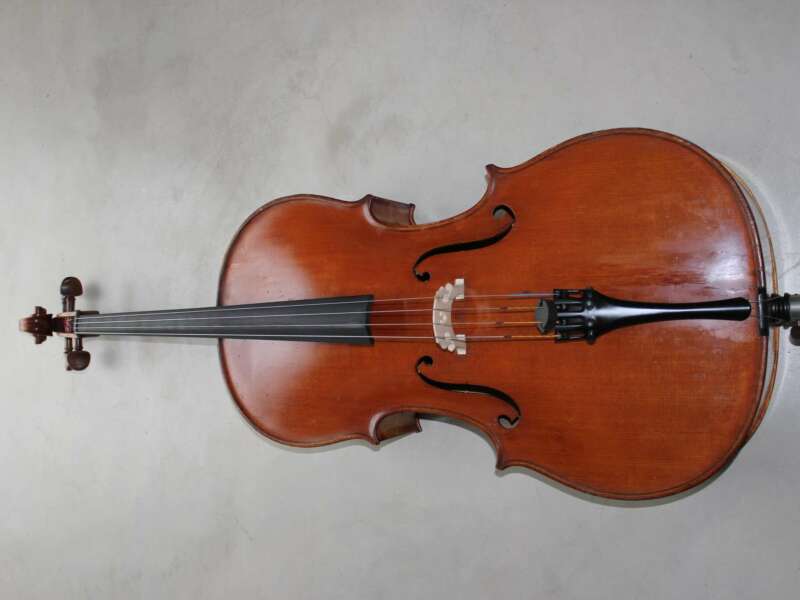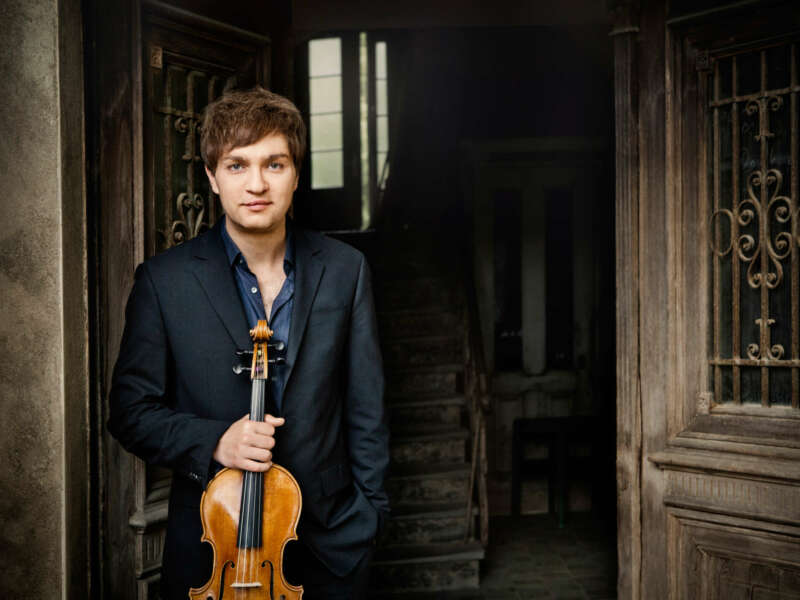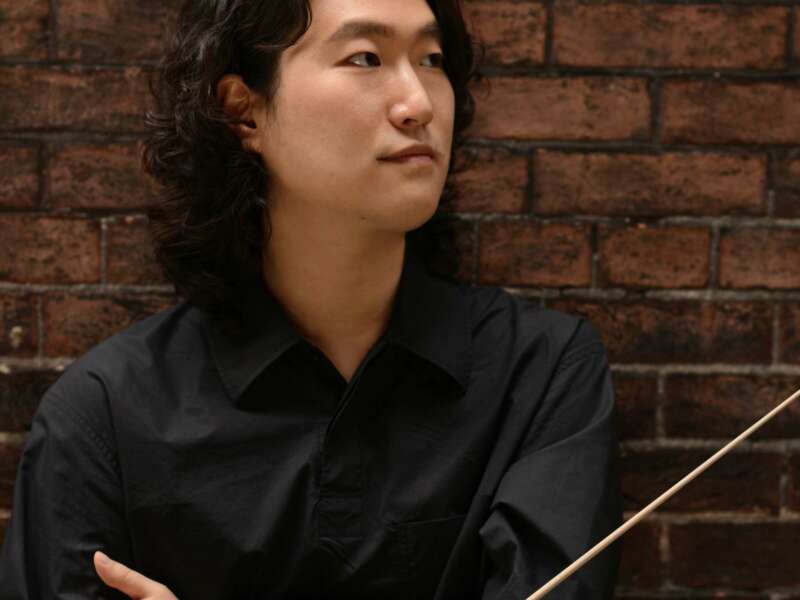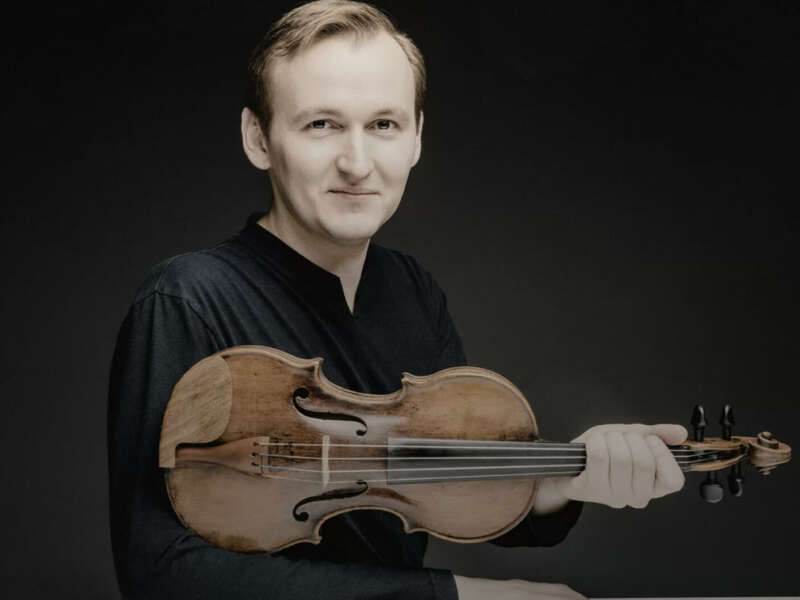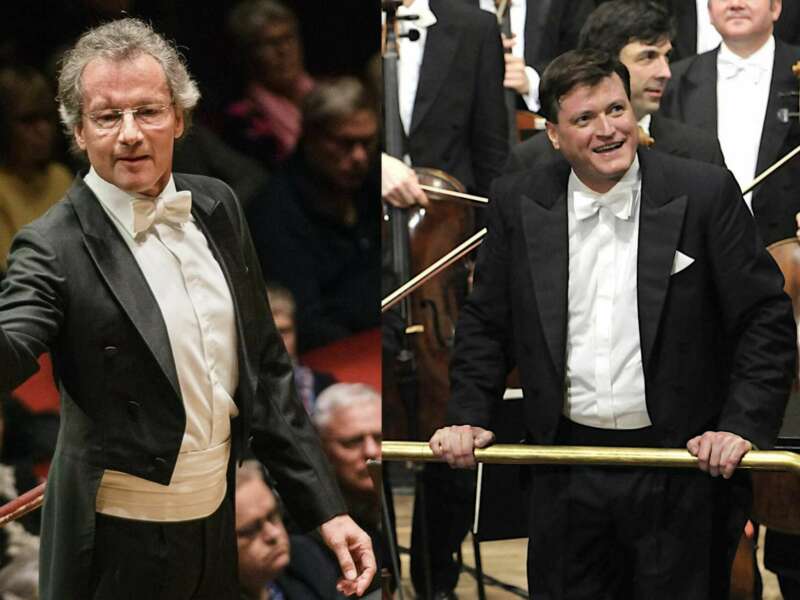VC INTERVIEW | Simon Woods, CEO and President of the League of American Orchestras
Reflecting on the league's 2022 conference, Simon Woods shares his expert advice and thoughts on the state of the industry
The Violin Channel had the pleasure of talking with Simon Woods, President and CEO of the League of American Orchestras.
After the successful 2022 Conference, entitled "Forward Together," in which Woods gave the opening address, we discussed the pros and cons of an in-person conference, the major themes discussed this year, his view on the state of the industry, and the ways in which the field can improve and diversify.
What went particularly well at the 2022 conference?
I would say the highlight was not one particular thing, so much as the overall mood. As early as last year, we had sensed that our field was desperate to come together again. The league conference has always been a sociable occasion, but we were blown away by how many people came. We had over one thousand people there, which was a very good turnout.
The field hasn't gathered for three years and it was clear from the moment that people arrived, they were just thrilled to see each other. As we watched people embracing and shaking hands, I started referring to it as the comeback conference.
The programming of the conference was also very strong, with the LA Philharmonic as an amazing partner. For those interested, session recordings on a variety of topics can be found here. Additionally, Thomas Wilkins, Principal Conductor of the Hollywood Bowl Orchestra, gave a fantastic address at the conference's closing section.
What were the main challenges of presenting the conference for the first time in three years? What would you do differently for next year's conference?
There was a continued sense of uncertainty when we planned it. As June neared, there was an element of risk due to the different COVID-19 surges. We considered doing a hybrid conference, but with over 150 events, it was not possible. While we provided a few hybrid components, we made the decision to go 'all-in' on the in-person conference.
I would say we got lucky because organizations that had planned in-person conferences in January and February were canceled. In the end, our conference was a calculated gamble that paid off.
I wouldn't do a lot differently, but there were a lot of things I would do the same. For instance, for the first time this year, we had a rather well-developed student track thanks to a partnership with the Orchestra Careers organization.
What would be your main piece of advice on planning conferences in today's uncertain climate?
In planning conferences, my big word of advice is to never underestimate the power of in-person. We've all become used to Zoom, and while Zoom is extremely effective in many ways, there is no substitute for being in the room, asking questions, having conversations, and exchanging ideas.
What is interesting to me is that if you look generally at global business travel, people are being more conservative and cautious about where they choose to spend their time and money. They're saying, 'what's the point of me doing a trip across the country for one, three-hour meeting?'
I think the message from our conference is this: if you make it worthwhile enough and you aggregate great content, you will give people a reason to come. Once you give people an incentive, they'll want to attend and share their ideas.
Does your advice differ when planning a concert?
Concerts are incredibly much more complicated and there are increasing amounts of research being done on the subject.
The big question that I think people are asking right now is this: What is our audience pattern going to be like in the years to come?
Additionally, have audience patterns of attendance been interrupted by COVID and we'll now snap back? Or have they been permanently disrupted and we will settle in different patterns?
I happen to be a subscriber to the second view because the data is pointing to the fact that there is probably a permanent shift in the way people think about attendance and buying subscriptions.
When you talk to orchestra managers, there is uncertainty about the audience and their patterns. It's a whole world of unknown.
What were the major themes or topics that stood out to you during the conference? What did people respond well to?
The big one in our field is equity, diversity, and inclusion. Our organization is highly invested in this and we believe there needs to be efficient change.
I think we have to remember that since the last time that we gathered as a field, not only have we had COVID, but we've also seen the resurgence of the Black Lives Matter Movement and the fight for racial equity increase, especially after George Floyd. That has changed the discussion.
I think what many of us noticed at the conference was that we're no longer trying to make the case about the need for change. The discussion is moving more into how do we do it? The more actionable items.
And there is change happening. We have most recently published reports like the 2022 Orchestra Repertoire Report with our partner, the Institute for Composer Diversity, that had many promising findings:
-
- Works by living composers almost doubled, increasing overall from 11.7% to 21.8%
-
- Works by women composers of color increased by 1425%, from 0.4% in 2015 to 6.1% in 2022.
-
- Works by living women composers of color increased by 1050%, from 0.4% in 2015 to 4.6% in 2022.
-
- Changes in diverse programming occurred across all measured orchestra budget groups and geographic regions.
-
- Women composers and composers of color with the most programmed performances in the 2021-2022 season include Lili Boulanger; Anna Clyne; Samuel Coleridge-Taylor; Duke Ellington; Gabriela Lena Frank; Jessie Montgomery; Florence Price; Joseph Bologne, chevalier de Saint-Georges; and William Grant Still, among others
American orchestras are really changing the repertoire now, whether that be in the gender or race of the composers. We're sort of building a new American repertoire, which I think is really exciting.
Then there are other areas in which we have a lot more work to do.
On the topic of diversifying the country's orchestral repertoire, can you tell me about the Virginia B. Toulmin Orchestral Commissions Program?
The Toulmin program is the fertile results of a great foundation, which has a vision, and an organization that is poised to support that vision. The latest incarnation of the Toulmin program is the idea of consortium commissioning. In this way, we're not just commissioning a composer for one performance. Rather, each composer gets five performances.
Of course, it's important to have the first performance. But then, how many pieces do audiences never hear again? What gets lost? It's only by repeat performances that really interesting works begin to find their way into the repertoire and become a permanent fixture.
What other actionable items in the fight for more equity, diversity, and inclusion were discussed at the conference?
There is a lot more to change in addition to repertoire. It's about changing the demographics of organizations' staff. It's about adding more diversity on boards. It's about changing the diversity of who's performing on stage. All of these are important.
We have to be moving forward on all of those axes. I always say to orchestras, 'There's nothing stopping you from diversifying your board tomorrow. The only thing that's stopping you is you.'
There are some things that we can do immediately, and others that are much more generational in nature. That doesn't mean we shouldn't be working on them with the same intensity. We have to be working with the same fervor on things we can change now and things that will take us a decade.
In your opinion, what is the state of the classical music industry post-COVID-19 lockdowns?
There is lots of data about that. But broad broadly speaking, what I'm hearing from orchestras is that subscriptions are anything between 10 and 25% down from where they were pre-COVID levels. But that's now, and I don't think we really know where that's going to land.
We also hear that the audiences are being more cautious in what they're choosing to buy tickets for, so familiarity becomes a virtue in terms of sales. But of course, familiarity is not a virtue when it comes to diversifying the repertoire.
I think we'll see a bit of tension between how desperately we need to diversify the music profession and repertoire with the fact that audiences are playing it quite safe. We'll have to deal with that dichotomy over the coming years.
When talking with the orchestras that are members of your league, how do you encourage them in these tough times?
Our goal is to provide them with the information they need and the best resources to be able to create change.
Plus, I get anxious when I hear people say that they're looking forward to things getting back to normal.
The comment that I sometimes make is that I'm not really sure that normal was serving us, before the pandemic. I think the pandemic has provided us an opportunity to think differently. It has provided us with this opportunity to say, 'how can we be more effective as organizations? And how can we be more inclusive?'
What is the new normal we want to create with a vision that's appropriate for the world we live in right now?
What is the league looking forward to in the next year?
It's hard to pinpoint one thing. We have a small staff of around 26 people and we do everything from government advocacy and professional development to research and data.
One of the things that I'm receiving from the field, which I'm happy about, is that I think the league as an organization, has never felt more valuable to orchestras as we're in this period of intense change.
I would hazard a guess that that's probably similar for most associations. I think associations have kind of come into their own in times of challenge. I'm excited about how we can support orchestras to go on being successful as we navigate the time ahead.
I don't think anything's going to be easy, but in a time in which things are hard, the services we provide are probably more valuable than ever.
For example, we're emphasizing data a lot this year, specifically on the change in demographics in our field as it happens in real time. So instead of looking back at a five-year snapshot, which is more typical, we are looking at change as it happens.
Speaking of changes in demographics, what are some ways orchestras are attracting a younger audience?
While that could be a completely separate interview, the topic is a constant challenge. The work to attract young audiences is incredibly complex.
Partly, it's about creating concert halls where people feel welcome. And to me, we have to think about a younger person coming to a concert and looking around them. If they see a mostly monolithic audience, both in terms of age and race, they're not necessarily going to feel at home.
The music itself, in a way, crosses generations. You don't need to be old or young or middle age to be able to appreciate Beethoven. But I don't think our spaces are always multi-generational.
The other thing that's important to notice is that many younger generations of audiences are much more connected with the music and culture of our time. So, this general move toward leveling the playing field between the past and the present music is only a good thing.
In general, do you have any advice for younger musicians who are scared to enter the classical music field? Any words of motivation?
I'm not an expert on this, but I think that my response would be this:
Of course, we're always going to need the best graduates at the highest level for great American orchestras, BUT there are many ways of making a career in music.
I'm not an orchestral musician, but I've spent my entire time in the management side of music and I feel very fulfilled about the work I do.
What I think is really interesting today is the notion of the entrepreneurial musician. We are seeing people build portfolio careers, which include teaching, composing, social advocacy, and commercial types of work.
We're seeing another generation of musicians saying, 'well, actually, that may be a better fit for me than playing in an orchestra.'
While my colleagues who run conservatories would definitely have a lot to say on the subject, I hope the idea of the entrepreneurial musician flourishes.
may 2024


